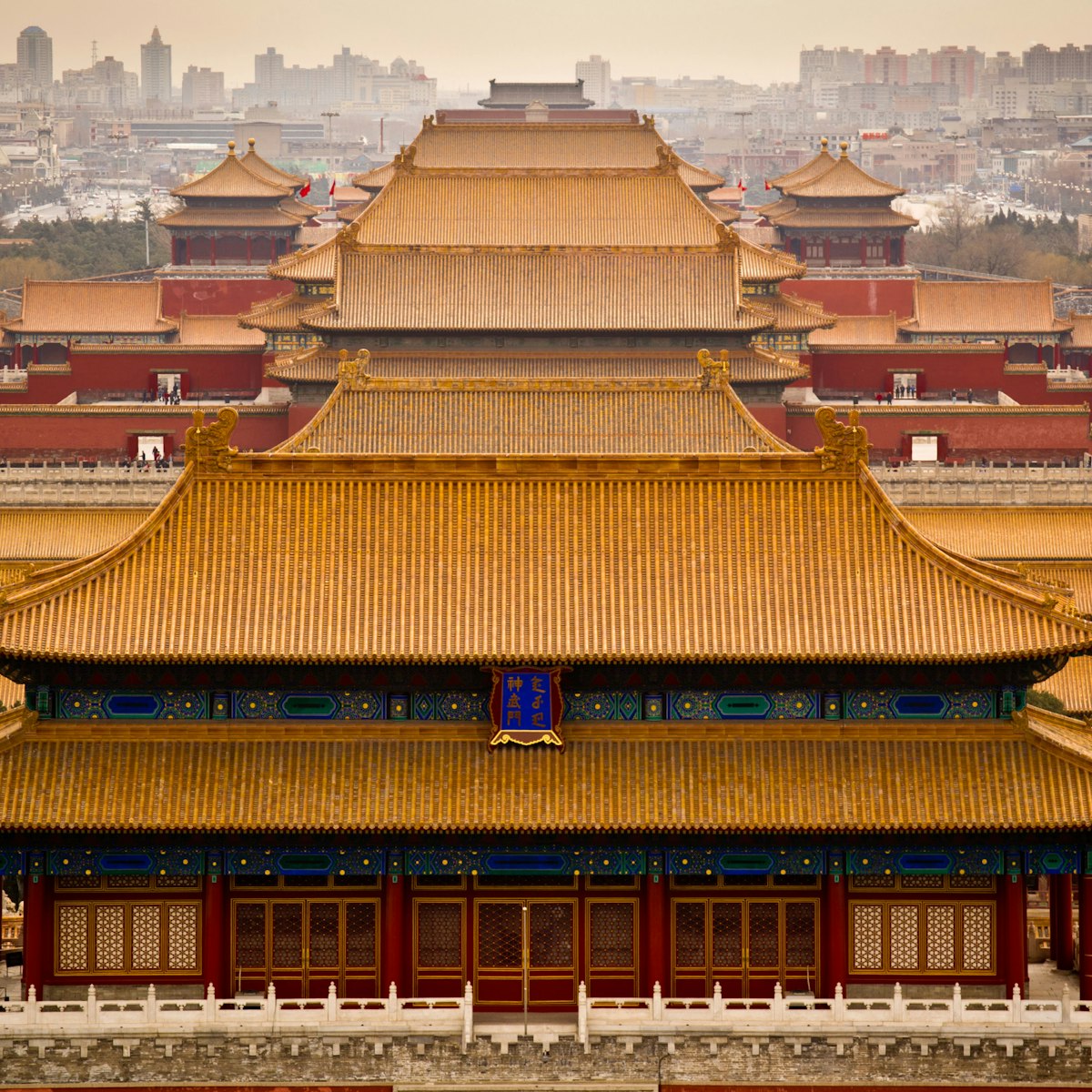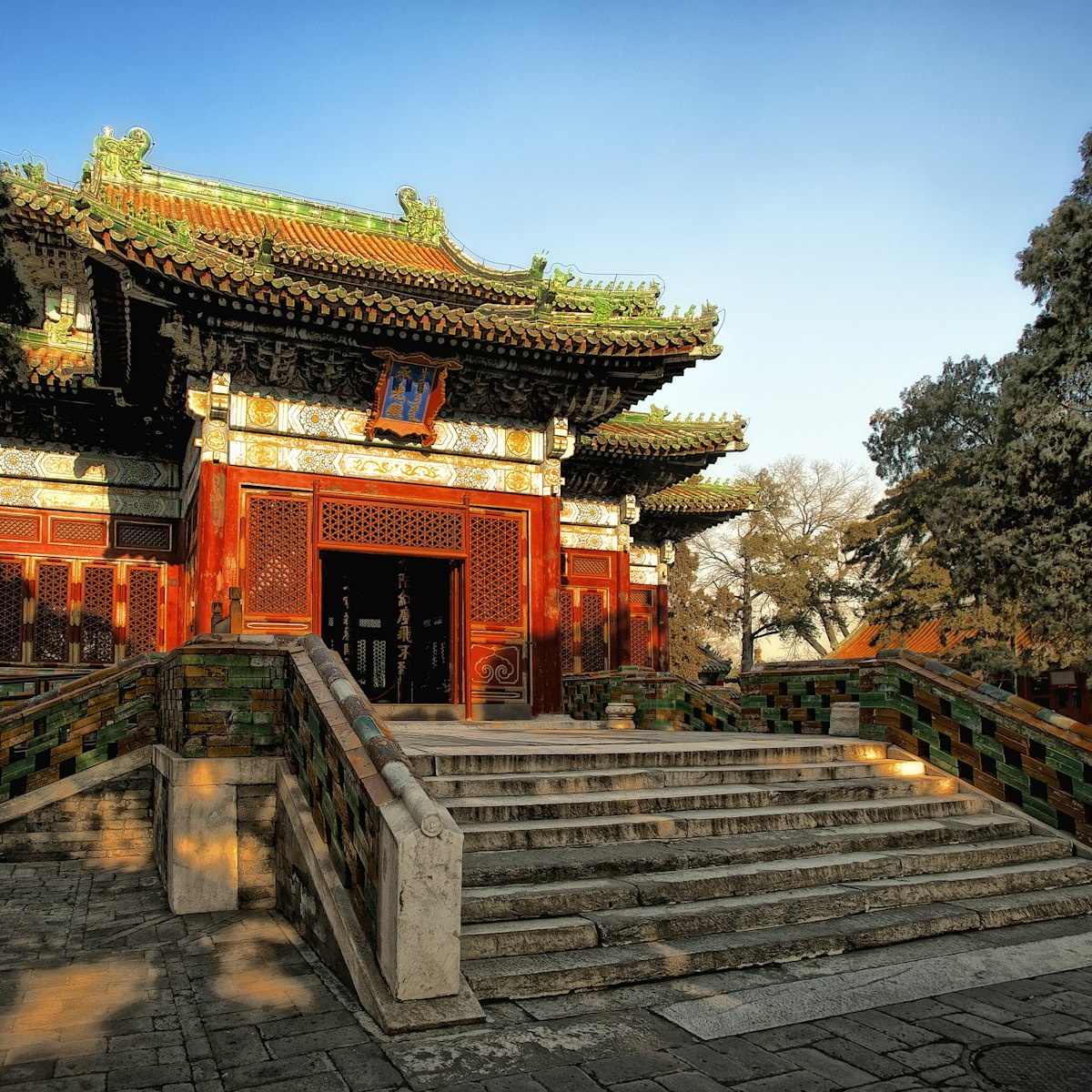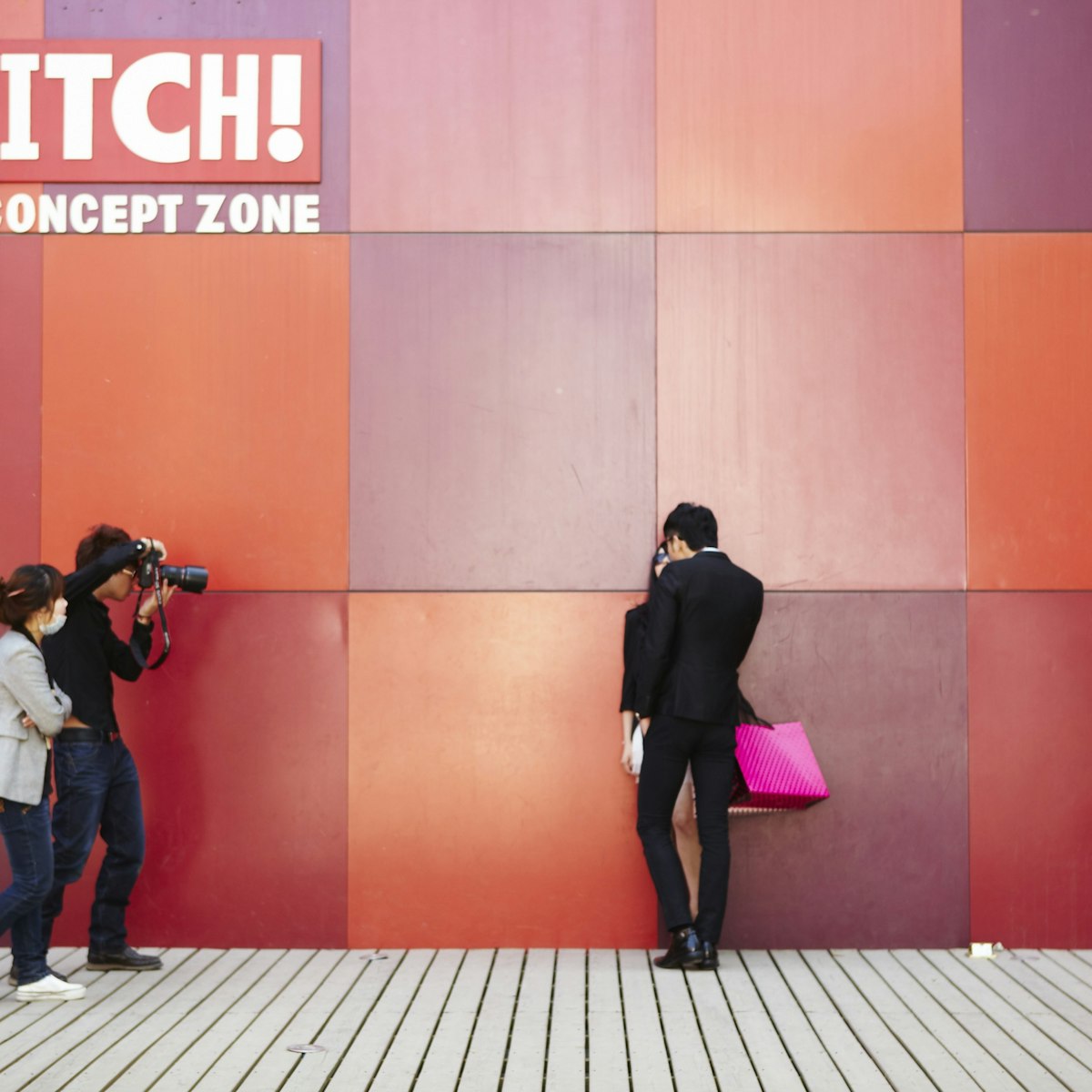It's no coincidence that the most magnificent of the Ming tombs bears more than a passing resemblance to the Forbidden City. It was commissioned by the same emperor, Yongle (1360–1424), the great builder of Beijing, and follows the same blueprint of imperial gates, halls and courtyards increasing in stature to the Hall of Eminent Favours (祾恩殿, Líng’ēn Diàn), mounted on a triple-tiered marble terrace exactly like the Forbidden City's Hall of Supreme Harmony. The unpainted interior, with its towering nánmù (cedar wood) columns, is breathtaking.
The purpose of the Ling’en Dian at imperial tombs was to allow visiting emperors and officials to pay tribute to the tomb occupant, even dining with the spirits on a lavish spread of dishes arranged on silk-covered tables.
Beyond lie a further set of gates leading to the Soul Tower (明楼, Míng Lóu), which fronts the vast burial mound, as yet unexcavated, encircled by a fortified wall (宝成, bǎo chéng). As with all three tombs open to visitors, you can climb the Soul Tower and circumnavigate the mound for fine views of the surrounding hills.







